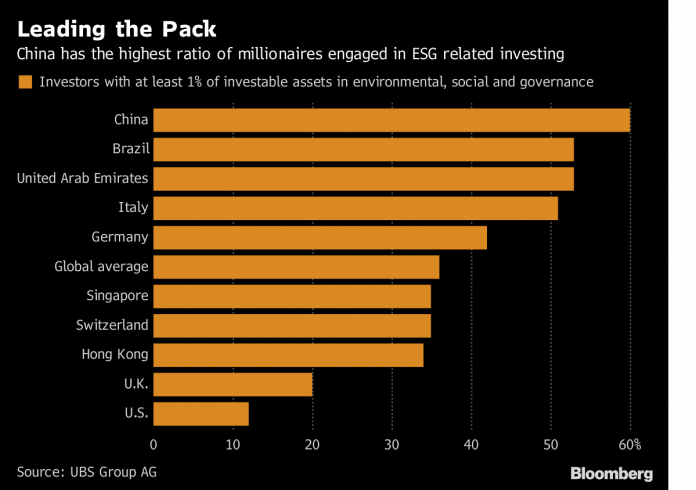Shifting investments into new tech, smart grid, waste reduction, efficiency, clean energy, eradication of waste of all kinds, specially on the food side, is key. How do we get wealthy individuals on board and part of the change?

NEW YORK – American millionaires are lagging behind wealthy counterparts elsewhere when it comes to sustainable investing.
United States investors ranked last among those surveyed in 10 countries with at least $1 million of investable assets, with only 12 percent claiming to have put money into environmental, social and corporate governance-related holdings, according to UBS Group AG. That compares with 60 percent of respondents in China and 53 percent in Brazil.
“Americans are focused on making money,” said Cary Krosinsky, who teaches sustainable investing at Yale and Brown universities. “Business is business.”
Sustainable investing incorporates broad societal concerns and personal values into investment decisions, while generally still trying to make a market-rate return. This can include such areas as investing in renewable energy, development debt or strategies aimed at promoting gender diversity.
While pension funds and other institutional investors control a large part of the market and have been leaders overseas, individuals in the U.S. haven’t had the same sort of direction, said Andrew Lee, head of Americas sustainable and impact investing at UBS’s global wealth unit.
Still, while a smaller percentage of Americans allocate assets sustainably, those who do put almost half into such investments, according to UBS.
“Once people are convinced, they do it with high conviction,” Lee said.
Defining sustainable investing can prove difficult, with more than two-thirds of respondents saying the terminology around the topic is confusing. Investors are also unsure what sort of returns they’ll get.
“The term sustainability itself means different things to different people,” said Christine Harada, president of impact-investing company I(x) Investments and former chief sustainability officer in the Obama administration. “There’s also a political perception issue – when people think about sustainability they think of it a bit as a California kind of fringe-y thing, when in reality there are very compelling economics.”
Reade Pickert and Suzanne Woolley are reporters for Bloomberg News.

No comments:
Post a Comment